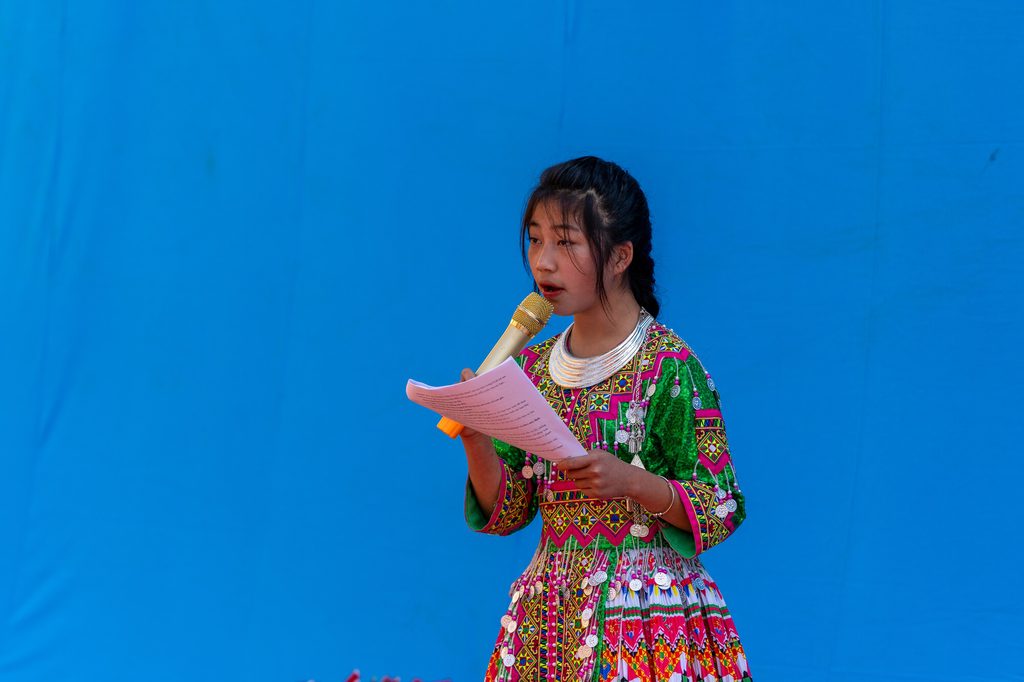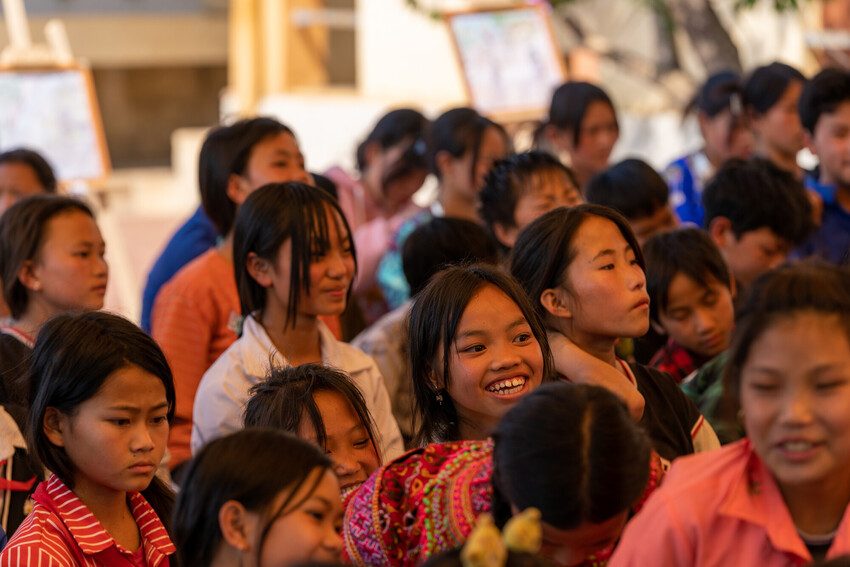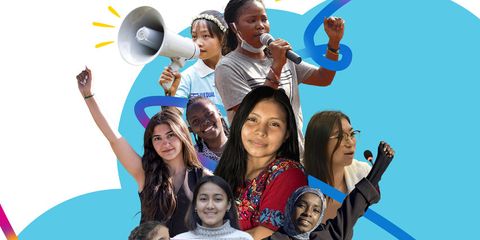Exceeding limitations: H’mong girl leads change in her community
From the indigenous H'mong people, 15-year-old Dung is a voice for the youth in her community, educating her peers and leading local change as she raises awareness of the harmful consequences of early, child and forced marriage.

Fifteen-year-old Dung is from Vietnam’s H’mong community where early marriage remains far more common than it does in the wider Vietnamese population. After seeing the effects of early marriage within her own family, Dung has become a successful peer educator and an active voice and advocate for the elimination of early, child and forced marriage in her community.
Becoming a young leader
“One day I will become a leader, and I will be able to do more for the children in my community.”
Dung
Dung explains why getting involved in her local Champions of Change club (a club with the aim of empowering young people to advocate against child, early and forced marriage) was important to her.
“I had witnessed firsthand how quickly my mum’s health had deteriorated so I understood the hardships young women have to go through. I decided to stand up and raise my voice, helping my peers and adults in the community alike, to question and challenge this harmful social norm.”
Through sessions at the club Dung learnt what early marriage was, and the negative impacts that follow. Soon she was hosting her own peer-to-peer awareness raising sessions on child marriage for the young people in her village. Dung describes the first session and the young people from her village who attended.
“Some were married already, and they had brought their children with them. I was quite shaken but regained my composure and organised a warmup game for everyone.
Seeing them laugh and having fun, I realised that I was a part of their community too. So, I continued and used my H’mong language to share my mother’s story as an example. The awareness raising was more successful than I could ever have expected.”

After the success of her first peer-to-peer session, Dung continued to improve her public speaking and facilitation skills. She was encouraged by the other Champions of Change club members, so continued reaching out and talking to girls in her village who were at risk of early marriage. Dung shared her stories and lessons with honesty and connected 2 of her friends with teachers who provided them with the support they needed to stop their marriages.
Representing young people in her community
Dung’s teacher proudly commended her for her observation skills and her ability to quickly adapt to different groups and settings. As Dung continued to grow more confident as a youth leader, she was introduced to the district’s Children’s Council, and became one of their youngest, most dedicated members.
When asked about her first Children’s Council meeting, Dung says, “I was nervous, of course. But my task was to honestly present the problems the children in my community face and bring their aspirations to the leaders. I didn’t have time to worry, I did it with confidence and pride.”
Dung says being part of the Champions of Change club and now the Children’s Council, has helped change her perspective and set her on a different path in life. “In the past, my mum taught me that girls should be good at housework and farm work so they could get married and have children. But I now know that I can do more.”
“I want to finish high school and then go to college or university. After that, I will return to my village to work in the People’s Committees (local state administrative agency) or unions. One day I will become a leader, and I will be able to do more for the children in my community. As a leader, my priority will be allocating resources to eliminate my community’s harmful practices and child marriage.”
“As a leader, my priority will be allocating resources to eliminate my community’s harmful practices and child marriage.”
Dung
As she makes her way home to take care of the family’s 6 cows and cook for her siblings, she concludes, “What I cherish most about taking part in the Champions of Change project is exceeding my own limitations.”
Child, early and forced marriage in the community
As members of the indigenous H’mong people, Dung’s parents had her before they were legally old enough to get married. Dung’s grandmother often told her: “Your mother didn’t know how to cook or hold a baby when she became a bride.”
As the eldest of 5 children, Dung is responsible for taking care of her younger siblings as well as other duties such as farm work and household chores. From early on, Dung knew her family wanted her to get married early too, because they seemed most proud of her when she did the housework, telling her that she would make a good wife one day.
“My task was to honestly present the problems the children in my community face and bring their aspirations to the leaders. I did it with confidence and pride.”
Dung
Dung’s family tried to discourage her from continuing her education at high school or taking part in extracurricular activities. They would rather save their money to spend on her little brother, the only boy in the family. Despite this, Dung was determined to do her best at school and won a scholarship for ethnic children to help pay for her studies at high school.
About the project
The ‘Time to Act! Support Youth Activism to Eliminate Child, Early and Forced Marriage in Vietnam’ project is being implemented by Plan International in Ha Giang province. The project supports youth-led activism, advocacy and engagement to end child, early and forced marriage in Vietnam.
Campaigns, Protection from violence, Youth empowerment, Child marriage


